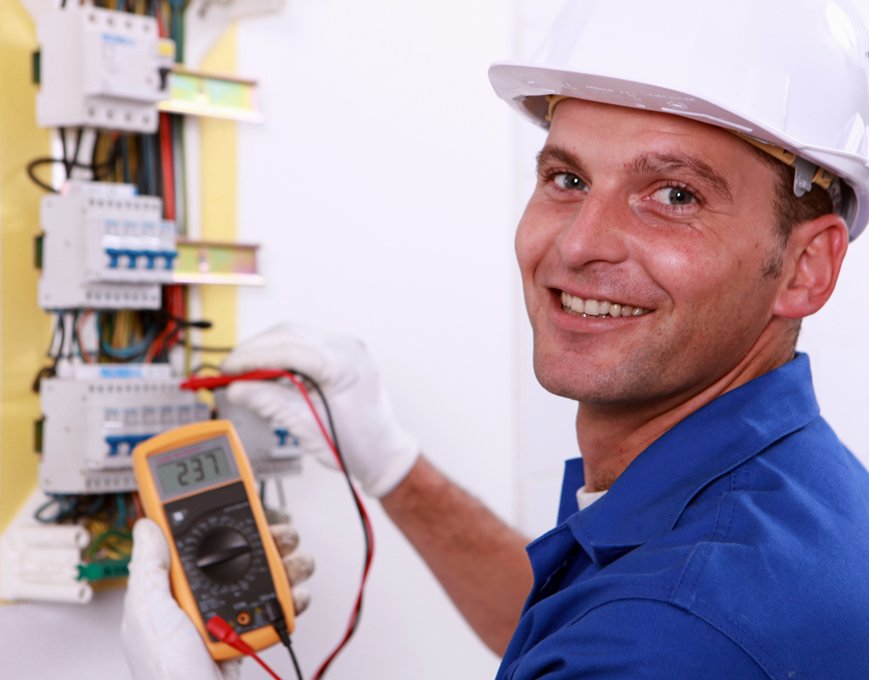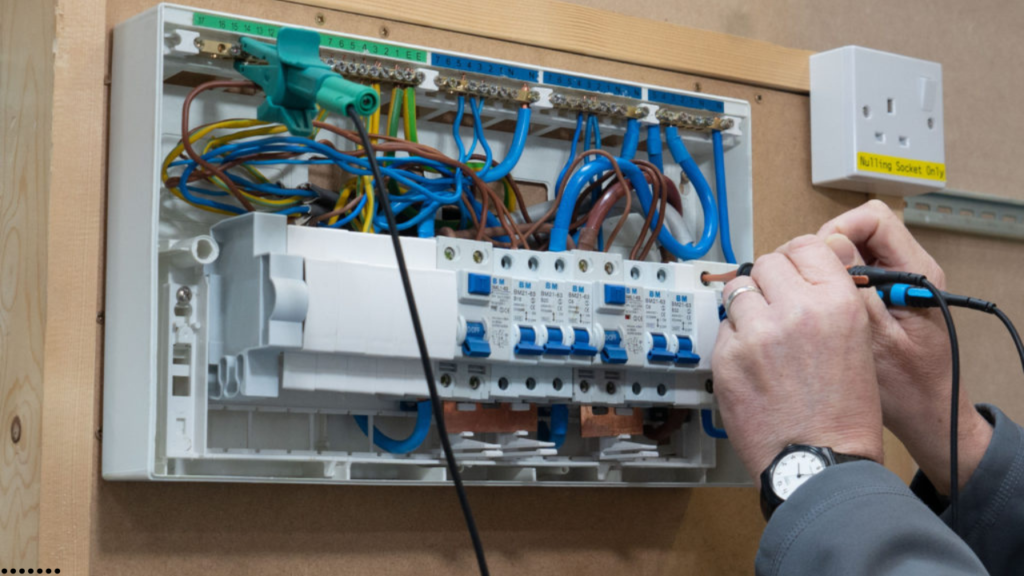As a commercial property owner, it’s essential to stay informed about the legal requirements that ensure the safety and compliance of your premises. One crucial question that frequently arises is “Is an Electrical Safety Certificate a Legal Requirement For Landlords 2025?” Understanding this requirement is vital, especially with the impending changes in regulations. This comprehensive guide will delve into what you need to know about electrical safety certificates and how they impact landlords in 2025.
Table of Contents
Legal Obligations for Commercial EICR
With the new regulations set to take effect, property owners must be clear on whether “Is an Electrical Safety Certificate a Legal Requirement For Landlords 2025?” The answer is yes. Starting from April 2021, commercial properties are required to obtain an Electrical Installation Condition Report (EICR) every five years. This requirement is not just a formality; it plays a critical role in ensuring that your property’s electrical systems are safe, compliant, and functioning correctly.
The EICR process involves a thorough examination of all electrical installations within the property by a qualified electrician. This inspection assesses the safety of electrical systems, circuits, and outlets, and generates a detailed report outlining any defects or safety concerns. Addressing these concerns promptly is crucial to maintaining safety and legal compliance. Understanding the legalities of EICR is vital, as it helps ensure that landlords meet all regulatory requirements. Thus, “Is an Electrical Safety Certificate a Legal Requirement For Landlords 2025?” Yes, it is essential for meeting regulatory standards and ensuring the safety of your property.
Understanding Commercial EICR
A thorough understanding of Commercial Electrical Installation Condition Reports (EICR) is essential for ensuring safety and compliance in commercial properties. Commercial EICRs are crucial for identifying electrical hazards, ensuring property protection, and providing compliance assurance.

These reports involve detailed inspections by qualified electricians to assess electrical systems, circuits, and outlets. The resulting report highlights defects, damages, and recommendations for remedial actions to mitigate potential risks.
Benefits of EICR for Commercial Properties
Conducting regular Commercial Electrical Installation Condition Reports (EICR) is imperative for ensuring the safety, compliance, and longevity of commercial properties. These reports provide crucial benefits for businesses, including safety assurance by identifying potential electrical hazards, compliance benefits by meeting legal obligations and industry standards, preventive maintenance through early detection of issues to prevent costly repairs or disruptions, insurance requirements fulfillment to maintain coverage and protect investments, and ensuring business continuity by minimising the risk of electrical failures that could impact operations.
EICR Inspection Process Explained
Following the discussion on the benefits of EICR for commercial properties, the EICR inspection process involves a comprehensive evaluation of the property’s electrical systems and circuits to ensure safety and compliance. The inspection is conducted in accordance with BS 7671 standards and must be carried out by a qualified and competent person. Here is an overview of the EICR inspection process:
| EICR Inspection Process | Description |
|---|---|
| Safety Assessment | Thorough evaluation of electrical safety measures. |
| Compliance Standards | Ensuring adherence to relevant regulations. |
| Inspection Process | Detailed assessment of systems and circuits. |
| Electrical Hazards | Identification of potential risks and hazards. |
| Remedial Actions | Recommendations for necessary repairs and upgrades. |
During the inspection, any issues found are classified into codes C1, C2, C3, and FI. Property owners are responsible for addressing these issues promptly to achieve a satisfactory EICR report and maintain the safety and compliance of the property.
Choosing an EICR Inspection Provider
When selecting an EICR inspection provider for commercial properties, consider essential criteria such as competence, industry recognition, and professionalism to ensure compliance and property safety. Provider selection criteria should prioritise companies with proven industry competence, demonstrated through qualifications and experience in conducting EICR assessments. Understanding landlord certificate obligations is vital in this process, as it ensures that the provider can meet all legal requirements and deliver a thorough inspection.
Professional reputation is crucial, as it reflects the provider’s reliability and adherence to standards. Look for a provider that offers remedial actions based on the inspection report, ensuring any identified issues are promptly addressed to achieve compliance. Effective solutions should be proposed by the provider to rectify any electrical safety concerns within the property.
Commercial Property EICR Requirements
To ensure compliance with safety regulations, commercial property owners are mandated to conduct an Electrical Installation Condition Report (EICR) every five years, starting from April 2021. This requirement is crucial for property safety, compliance with standards, liability protection, meeting insurance requirements, and adhering to safety regulations. Failing to possess an up-to-date EICR can leave property owners exposed to potential liability for damages, emphasising the necessity of this periodic assessment.
| Key Points | Details |
|---|---|
| Property safety | EICR ensures the safety of occupants and property functionality. |
| Compliance standards | Mandatory EICR demonstrates adherence to safety regulations. |
| Liability protection | Having an up-to-date EICR protects property owners from potential damages. |
| Insurance requirements | Insurers often require an EICR for policy compliance, ensuring coverage. |
| Safety regulations | EICRs are essential to meet industry-specific and general safety regulations. |
Conducting the EICR Report
Commencing the EICR report involves a meticulous assessment by a qualified electrician to evaluate the safety and compliance of commercial electrical installations. The process begins with a thorough visual inspection followed by rigorous testing procedures adhering to BS 7671 standards.

The electrician meticulously examines all electrical systems, circuits, and outlets, identifying defects, damages, or irregularities. The resulting report is crucial for report interpretation, fault prioritisation, and repair coordination. It serves as a roadmap for addressing identified issues with codes C1, C2, C3, and FI, ensuring safety enhancement and compliance assurance.
Furthermore, the EICR report plays a vital role in maintaining the safety and functionality of commercial properties. Property owners must take prompt action to address any flagged issues, coordinating repairs to achieve a satisfactory EICR status. By engaging qualified and experienced contractors with relevant accreditations, property owners can ensure that necessary repairs are handled efficiently and effectively to enhance safety standards and guarantee compliance with regulatory requirements.
Addressing EICR Report Issues
Upon completing the meticulous assessment of a commercial property’s electrical systems and outlets, the EICR report outlines identified issues with codes C1, C2, C3, and FI, necessitating prompt action for safety enhancement and regulatory compliance. Addressing these issues is critical to ensure electrical safety and maintain compliance with existing regulations.
The report categorises the severity of identified problems, ranging from immediate action required (C1) to further investigation needed (FI). Property owners are responsible for promptly handling repairs associated with these codes to rectify any safety hazards or compliance issues. By addressing these issues promptly, property owners can implement effective maintenance strategies to mitigate risks and ensure the ongoing safety of the commercial property.
It’s essential to prioritise these repairs to maintain a safe environment for occupants and uphold legal obligations. Compliance with the EICR report recommendations is fundamental in safeguarding the property and its users from potential electrical hazards.
Frequently Asked Questions
What Are the Potential Consequences for Commercial Landlords if They Fail to Obtain an Electrical Safety Certificate by 2024?
If I fail to obtain an electrical safety certificate by 2024, potential consequences include legal implications, safety risks, financial penalties, and liability concerns. Compliance is crucial to ensure property safety and meet regulatory requirements.
Are There Any Specific Regulations or Requirements for Commercial Properties Located in Designated Historic Districts or Conservation Areas?
In designated historic districts or conservation areas, compliance checks are crucial. Landlords must uphold strict conservation restrictions for property maintenance. Understanding historic preservation laws is essential to meet landlord responsibilities and avoid legal issues.
How Does the Process of Obtaining an Electrical Safety Certificate Differ for Commercial Properties With Mixed-Use Purposes?
When obtaining an electrical safety certificate for mixed-use commercial properties, I navigate safety regulations meticulously. The inspection process ensures compliance with diverse property functions. Meeting certification requirements demands thorough understanding of safety codes and property usage.
Are There Any Financial Assistance Programs Available to Help Commercial Landlords Cover the Costs Associated With EICR Inspections and Necessary Repairs?
Yes, financial assistance programs such as grants and funding options exist to help commercial landlords cover EICR inspection and repair costs. Support services are available to ensure compliance with safety regulations and reduce financial burden.
What Steps Should Commercial Landlords Take if They Suspect That Their Property May Have Been Tampered With or Damaged in a Way That Could Impact Electrical Safety?
If I suspect property tampering affecting electrical safety, I initiate thorough inspection procedures led by certified professionals. Prioritise safety precautions, risk assessment, and property maintenance. Promptly address any identified issues through necessary electrical repairs for compliance.
Conclusion
In conclusion, obtaining and maintaining a Commercial Landlord Electrical Safety Certificate is a critical legal requirement for commercial property owners to ensure the safety and compliance of their premises.
By understanding the significance of these certifications, conducting thorough inspections, and promptly addressing any identified issues, businesses can protect themselves from potential liabilities and safeguard the well-being of those who frequent their property.
Stay informed, proactive, and compliant to navigate these requirements effectively.


